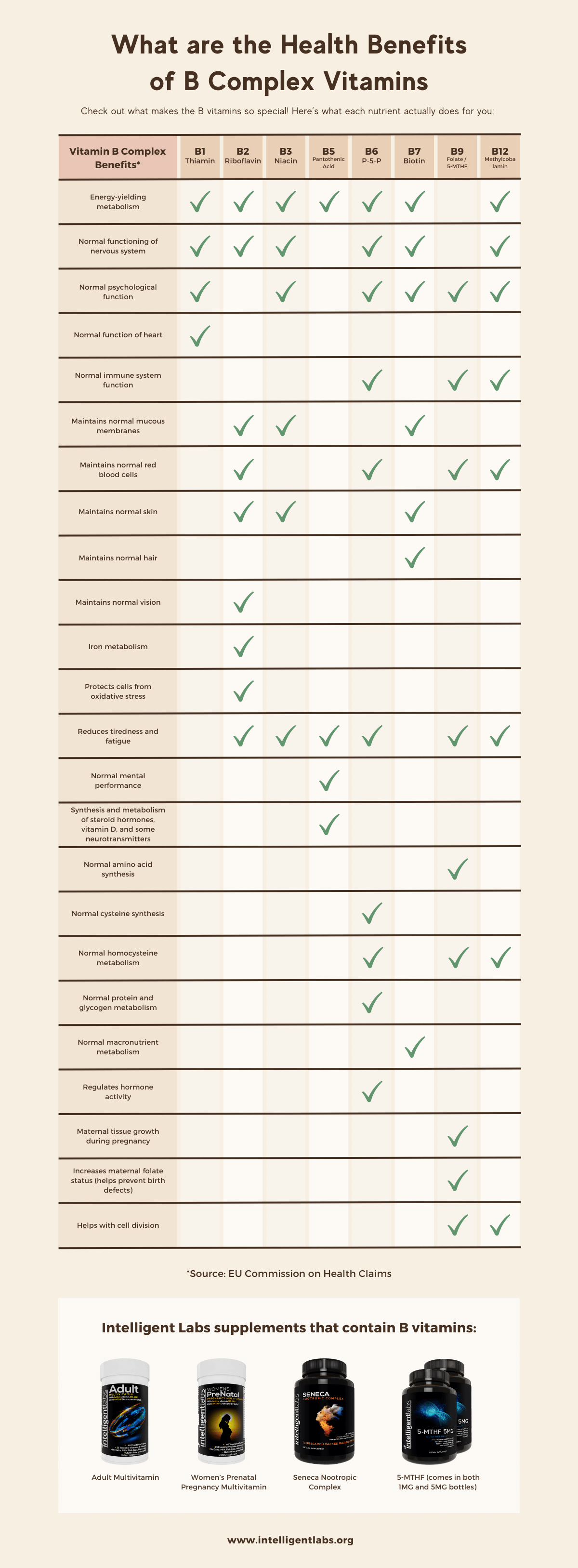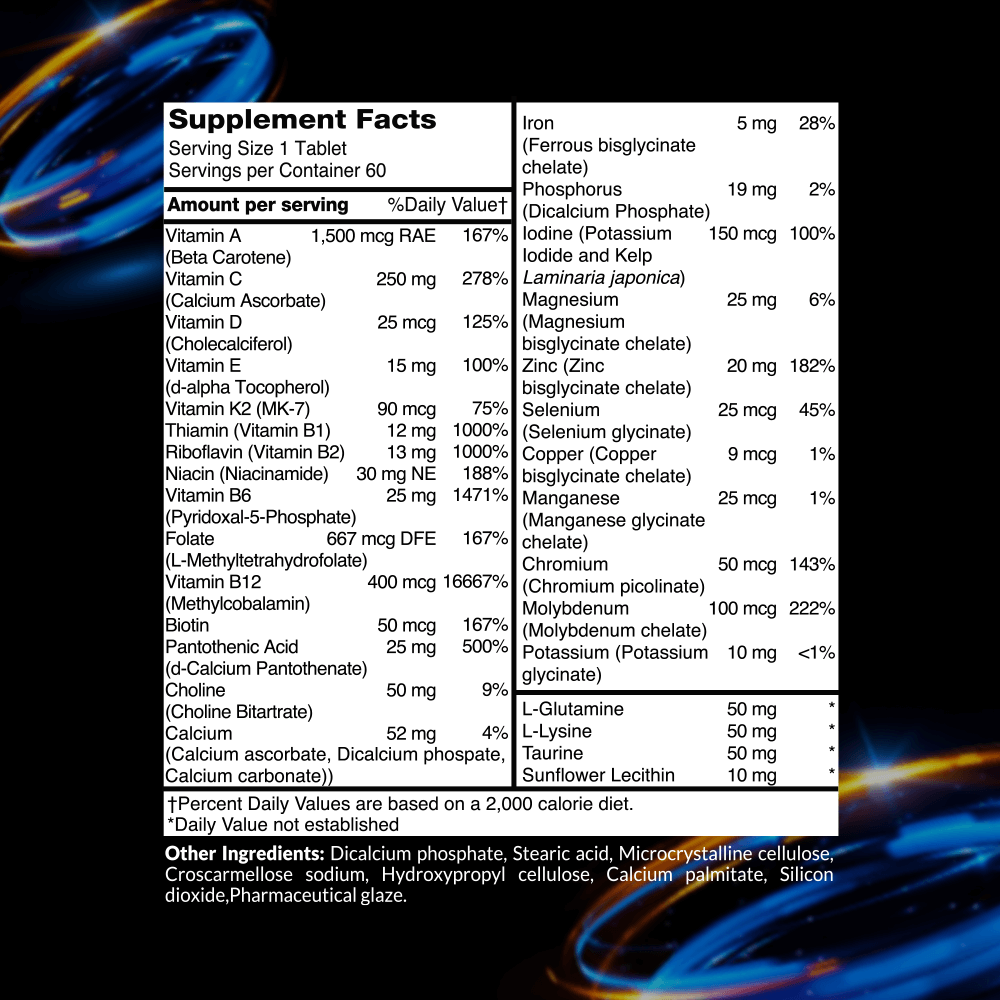Nutrition
Do Multivitamins Work? Weigh The Pros and Cons of Taking Multivitamins
A healthy, well-balanced diet should always be the #1 choice when it comes to nutrient sources. But there are good reasons why millions of people take multivitamins daily. Case in point – our Adult Multivitamin and Women’s Prenatal Multivitamin. Both products are super popular because they help our customers!
So, in this blog post, we’ll examine the pros and cons of multivitamins (MVM). We’ll also answer the age-old question that’s probably on your mind – are multivitamins good for you, and do they work? Read on to know the definitive answer.
Table of Contents
What are the pros and cons of multivitamins?
We’ll divide this section into two, starting with the pros of taking multivitamins.
What are the advantages of taking multivitamins?
1) Multivitamins may help fill nutritional gaps and prevent deficiencies
Multivitamins have been filling nutritional gaps in people’s diets since the 1940s. Today, millions of adults and children take MVMs to complement their daily diets and prevent nutritional deficiencies.1
MVMs are designed to provide a broad spectrum of nutrients for people who may not get everything they need from food. Similarly, individuals who may already be eating healthy (but still want to ensure all nutritional bases are covered) may also benefit from MVMs.
In fact, one study that reviewed the micronutrient intake of 70 health-conscious individuals found their nutrient levels lacking, even though they ate healthy, balanced diets.2 This suggests that we’re not getting all essential nutrients from diet alone.
MVMs are probably best for those with mild or moderate nutritional deficiencies. Severe deficiencies may require targeted supplementation of high-potency MVMs to raise levels quickly. This approach is best done under medical supervision as they can:
- identify the critical nutrients, and
- recommend a health plan to improve nutrition as quickly and safely as possible.
2) Multivitamins may help boost energy levels
Many multivitamins include the whole range of B complex vitamins. These water-soluble nutrients contribute to many bodily functions, including reducing fatigue and improving energy levels.
Here’s an infographic that breaks down the specific health benefits of each B vitamin:

Of course, multivitamins can only do so much when it comes to helping with energy. Your lifestyle also plays a huge role. Exercising, eating right, and getting quality sleep all help!
That said, if you take MVMs containing B complex vitamins, take them in the morning. You probably don’t want to deal with excess energy at night as it may affect your sleep.
Related article: When Is The Best Time To Take Vitamins? Take A Guess!
3) Multivitamins may help people with specific nutritional needs
Certain groups of people require higher nutrient intake compared to the general population. For example, older people may need to adjust their micronutrient intake to account for their health needs.3
Likewise, pregnant and breastfeeding women must also consider their maternal nutrient needs and their babies (our Women’s Prenatal MV is formulated for women in these life stages).
Moreover, people who cannot absorb certain nutrients due to genetic issues or health conditions may benefit from taking MVMs that use the active forms of nutrients.
4) Multivitamins are relatively inexpensive and widely available
Unfortunately, there is some truth to the idea that healthy foods cost more.4 While MVMs can never hold a candle to nutritious food, they may give you the best bang for your buck.
Multivitamins run the gamut from cheap and low-quality to expensive and high-quality. But products with expensive price tags aren’t necessarily the best, either. Check out our blog post where we share 7 tips to help you choose the best adult multivitamin.
You can also buy multivitamins in many places, including drug stores, groceries, supermarkets, health stores, online shops, marketplaces, etc.
Some stores also have a subscribe and save option, like our Adult Multivitamin and Prenatal Multivitamin. You save a few bucks with a subscription; we’ll even deliver your bottle every 60 days for free!
5) You know exactly what you’re getting
Part of the appeal of multivitamins is that you know for sure what you’re getting. All you need to do is look at the label and you’ll get details like:
- The nutrients in each tablet
- The amount per nutrient in each tablet/serving
- What’s the equivalent daily value for each nutrient compared to the official Recommended Daily Allowance
- How many servings are in each bottle so you know how long it will last
Here’s what’s on our Adult Multivitamin label:

And this is what our Women’s Prenatal Multivitamin label looks like:

As you can see, the label details will help you look for the best multivitamin that fits your needs!
6) Multivitamins are super convenient
Instead of taking several single-vitamin supplements, you can take a multivitamin that contains several nutrients in each tablet. For example, our Adult Multivitamin contains 25 essential nutrients per tablet. This is obviously more convenient compared to swallowing 25 pills for each nutrient!
MVMs are accessible, portable, and easy to consume. There’s no cooking involved; no preparations needed other than maybe having a glass of water nearby. Whether at home or traveling, pop one in your mouth and wash it down with water. Mighty convenient, isn’t it?!
What are the disadvantages of multivitamins?
Loving the idea of multivitamins so far? Well, they do have a lot of pros, but we’ll be honest with you. Multivitamins aren’t for everyone. Here’s why:
1) There are far too many choices!
Having plenty of options is nice if you know what you’re looking for. However, it can be mentally exhausting if you don’t. Decision fatigue and paralysis by analysis may occur when an ocean of multivitamins surrounds you!
The best way to combat decision fatigue is to do your homework first. To narrow down your choices, you may need to:
- Consult with a healthcare professional (highly recommended)
- Analyze your diet and lifestyle
- Research multivitamin brands
- Read up on nutrient forms that may help you, e.g. folic acid vs 5-MTHF
- Identify other (unnecessary) ingredients, e.g. fillers, sugar, artificial ingredients
- Check the product packaging (what do they use to protect the nutrients inside)
- Find out if third-party lab tests have been done to confirm what’s printed on the label
Learn how to weed out the low-quality MVMs. Read our in-depth guide on how to choose the best multivitamin for adults.
2) Multivitamins will never taste as good as food
It doesn’t matter if you choose multivitamin tablets, capsules, gummies, liquid, etc. They’re never going to taste as good as the real thing!
MVMs in pill form may have a bitter taste. Gummies may be loaded with sugar and artificial sweeteners. Liquids may remind you of cough medicines. That said, multivitamins aren’t meant to be enjoyed like food, so it’s best to swallow them quickly and get your daily serving efficiently!
3) May cause toxicity if certain nutrients are taken in excess
The saying “too much of a good thing” applies to multivitamins too, especially in megadoses of the fat-soluble vitamins A, D, E, and K.
Unlike the water-soluble vitamins (B complex and vitamin C), which are simply flushed out when taken in excess, the fat-soluble ones are stored in the body. They are also eliminated much more slowly than water-soluble vitamins. This excess nutrient buildup can cause vitamin toxicity. 5
For both our Adult Multivitamin and Women’s Prenatal Multivitamin, we made sure that every nutrient is well within the recommended tolerable limits.
4) Many multivitamins use ineffective nutrient forms to save on costs
Unfortunately, many brands use nutrient forms that are poorly absorbed and/or non-bioactive as these are cheaper to produce. This means that your body may have issues using these nutrients.
Always check the product label so you know the exact vitamin forms. For example, for both of our multivitamins, we use the active forms of nutrients:
- For vitamin B6, we use Pyridoxal-5-Phosphate instead of Pyridoxine, the commonly used inactive form.
- For vitamin B12, we use Methylcobalamin instead of Cyanocobalamin, the form used in many MVMs.
- For vitamin B9, we use L-methyltetrahydrofolate (aka 5-MTHF activated folic acid) instead of the usual folic acid found in most supplements and fortified foods.
These active forms require no further biochemical conversions in the body and are ready for use upon absorption!
Conclusion – Do multivitamins work?
Just like many things in life, multivitamins aren’t created equal. Depending on the product and your reasons for taking them, they may or may not work. While we cannot speak for the whole MVM industry, we can assure everyone that our Intelligent Labs Multivitamins are formulated with scientific precision to support the health needs of our customers.
References
- “Office of Dietary Supplements – Multivitamin/Mineral Supplements.” Nih.gov, 2017, ods.od.nih.gov/factsheets/MVMS-HealthProfessional/. ↩︎
- Misner, Bill. “Food Alone May Not Provide Sufficient Micronutrients for Preventing Deficiency.” Journal of the International Society of Sports Nutrition, vol. 3, no. 1, June 2006, https://doi.org/10.1186/1550-2783-3-1-51. ↩︎
- Abolfathi, Mitra, et al. “The Effect of Consuming Multivitamin/Mineral Supplements on Elderly Quality of Life: Based on Randomized Control Trial.” Journal of Education and Health Promotion, vol. 10, 27 Feb. 2021, p. 63, www.ncbi.nlm.nih.gov/pmc/articles/PMC8057174/ ↩︎
- Rao, Mayuree, et al. “Do Healthier Foods and Diet Patterns Cost More than Less Healthy Options? A Systematic Review and Meta-Analysis.” BMJ Open, vol. 3, no. 12, Dec. 2013, p. e004277, bmjopen.bmj.com/content/3/12/e004277 ↩︎
- “Multiple Vitamin Overdose Information | Mount Sinai – New York.” Mount Sinai Health System, www.mountsinai.org/health-library/poison/multiple-vitamin-overdose. ↩︎




